 Last weekend, N and I manage to catch the sneaks on Ratatouille, the new Disney’s animated movie about a rat who loves to cook and aspires to be a chef despite the odds of mankind’s attitude of judgment that writes off the our little friend as nothing more but a rodent who steals food. Though the launch was targeted for the September holiday break for schools so that the kids can have something to look forward to, the movies delivers many valuable learning points of life for adults too and not just pure entertainment for children. The writer of this blog coincidentally was also born in the year of the Rat according to Chinese almanacs and had too aspired to be a chef from young just like the movie’s main character.
Last weekend, N and I manage to catch the sneaks on Ratatouille, the new Disney’s animated movie about a rat who loves to cook and aspires to be a chef despite the odds of mankind’s attitude of judgment that writes off the our little friend as nothing more but a rodent who steals food. Though the launch was targeted for the September holiday break for schools so that the kids can have something to look forward to, the movies delivers many valuable learning points of life for adults too and not just pure entertainment for children. The writer of this blog coincidentally was also born in the year of the Rat according to Chinese almanacs and had too aspired to be a chef from young just like the movie’s main character.  This is what tickles N most I guess as she has never seen the formative years of my training in the professional kitchen and is always on a lookout to see how things are like, working and learning in one such an
This is what tickles N most I guess as she has never seen the formative years of my training in the professional kitchen and is always on a lookout to see how things are like, working and learning in one such an  environment. What relates me to this movie so well is that Ratatouille, which in reality is a vegetable dish of summer squashes cooked in tomato sauce and Provencal herbs, is originated from Nice, the southern city of France. Its a place I called home during the five and half years of traveling around Europe and with the backdrop of the story focused on the happenings of a restaurant kitchen in Paris, the French capital, where I had spend two winters there, it brought back many familiar emotions in me. So inspired I was that I have planned for a cooking workshop menu in late September based on the theme of the movie showcasing the original dish and two other dishes synonymous with the Provencal cooking.
environment. What relates me to this movie so well is that Ratatouille, which in reality is a vegetable dish of summer squashes cooked in tomato sauce and Provencal herbs, is originated from Nice, the southern city of France. Its a place I called home during the five and half years of traveling around Europe and with the backdrop of the story focused on the happenings of a restaurant kitchen in Paris, the French capital, where I had spend two winters there, it brought back many familiar emotions in me. So inspired I was that I have planned for a cooking workshop menu in late September based on the theme of the movie showcasing the original dish and two other dishes synonymous with the Provencal cooking.The first parable of the movie, “Anyone can cook” by Chef Gusteau is so true in our everyday life and if not so, the culinary world would not be where it is today if mankind of all races had not learnt to cook from primitive days.
 Let me just add on to it, “There is no right and wrong about cooking, only whether you like it or not.” This is my personal philosophy about cooking and is one of the first advices that are always dispensed to people who so much want to learn how to cook.
Let me just add on to it, “There is no right and wrong about cooking, only whether you like it or not.” This is my personal philosophy about cooking and is one of the first advices that are always dispensed to people who so much want to learn how to cook.The movie also seeks to enlighten people that cooking is a form of the arts and not just a job or chore. It is culinary artistry that is not bounded by numbers and rigid scientific processes but a free spirited form of expression of oneself to transform nature’s bounties into fine master pieces using a human’s five senses of sight, sound, taste, touch and smell. Sure experience does counts but that comes in only if you have learnt how to use your senses to create a balance of taste and astatically appealing presentations. Reflections of the chef’s love hate relationships with critics and health inspectors are also shared in the movie as these two groups of people are sometimes critical to the survival of a restaurant.
Besides giving a comical insight of the adventures of cooking, the movie also seeks to educate the audience on the finer points of food appreciation irregardless to your cuisine heritage.
 More often than not, we are so caught up with the rat race of our daily lives that we tend to forget the simple pleasures of life which eating plays a big part. Food brings everyone to the table irregardless of the occasion, happy or sad, serious or merry. Eating not only nourishes our body, it also comforts our soul and brings a sense of balance and well being to our minds, which is again why I do not understand how is it that perfectly normal healthy people need to diet for. How many times in life do we stop to smell the flower which is the same as chewing our food slower to allow a better appreciation of taste and flavours on the palate?
More often than not, we are so caught up with the rat race of our daily lives that we tend to forget the simple pleasures of life which eating plays a big part. Food brings everyone to the table irregardless of the occasion, happy or sad, serious or merry. Eating not only nourishes our body, it also comforts our soul and brings a sense of balance and well being to our minds, which is again why I do not understand how is it that perfectly normal healthy people need to diet for. How many times in life do we stop to smell the flower which is the same as chewing our food slower to allow a better appreciation of taste and flavours on the palate?  Just think of how in the movie where our friend Remy encourages his brother to taste fruit and cheese each on their own before combining them together in the mouth that results in a symphony of sensations on the palate. We should never put badly cooked food into our mouths but for something that has been passionately and lovingly prepared whether by chefs or simply home cooked by our own mothers, it is such a shame whenever gluttony overtakes gastronomy and this happens most of the time. Have u ever seen how some people eat at buffet lines?
Just think of how in the movie where our friend Remy encourages his brother to taste fruit and cheese each on their own before combining them together in the mouth that results in a symphony of sensations on the palate. We should never put badly cooked food into our mouths but for something that has been passionately and lovingly prepared whether by chefs or simply home cooked by our own mothers, it is such a shame whenever gluttony overtakes gastronomy and this happens most of the time. Have u ever seen how some people eat at buffet lines?Beyond culinary, “Ratatouille” also digs at the many shortcomings in the human’s nature aspect of life. Jealousy, greed, arrogance, selfishness and hypocrisy were portrayed in the characters similar to what we see in the everyday life of office/kitchen politics. We take credit for work done by others, bully the lower rank staff and are stingy to give compliments, recognition and merit for success achieved by our peers and juniors. Still however, an important point to note is that success by chance is never sustainable than it is with hard work and experience. Another important corporate lesson learnt is to constantly stay focused of your objectives and do the right things instead of getting too greedy and loosing the key identity of your success.
 The movie digs at Corporate America where home grown successful chefs like Wolfgang Pucks and Emeril Lagasse have traded the value of their success in culinary excellence for financial gains by endorsing and lending their names into mass production of frozen TV diner meals that do not even come out of their respective kitchens. Worse still in a world where stereotyping of your race and heritage are a fact beyond one’s control yet is an important aspect in regards to the type of foods or cuisine that you cook, having a one certain Chef Michelangelo Linguini endorsing the mass production of frozen Superior Broth Xiao Long Bao is just one big no no to many retail consumers. It's a down to earth reminder that staying focused with your strengths and resources are the best keys to success that being overly ambitious and having too much on one’s plate.
The movie digs at Corporate America where home grown successful chefs like Wolfgang Pucks and Emeril Lagasse have traded the value of their success in culinary excellence for financial gains by endorsing and lending their names into mass production of frozen TV diner meals that do not even come out of their respective kitchens. Worse still in a world where stereotyping of your race and heritage are a fact beyond one’s control yet is an important aspect in regards to the type of foods or cuisine that you cook, having a one certain Chef Michelangelo Linguini endorsing the mass production of frozen Superior Broth Xiao Long Bao is just one big no no to many retail consumers. It's a down to earth reminder that staying focused with your strengths and resources are the best keys to success that being overly ambitious and having too much on one’s plate.Family importance is also stressed in the storyline as nothing else comes close to having the support of your immediate loved ones during times of crisis. Our family members are often the first people we think of and activated in the line of help that is needed during times of difficulty. No matter how successful one may be in society, it's the nest that we grow up in that we often return to for familiar flavours, warmth and comfort at the end of the day.
In conclusion, the movie’s script was very well written and the essence of the story on doing the things that u enjoy doing with passion irregardless if its work or play is one of the best things in life. To understand that and embrace that value, one should find life a lot easier and happier than to fret over the most stupid things sometimes like being kiasu which is the local slang for being constantly in the fear of losing out to others in everything.
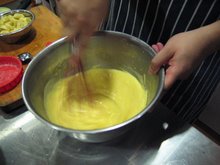

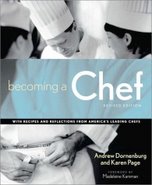
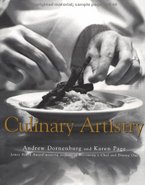


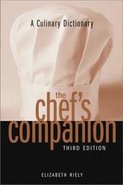

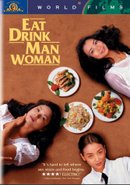
.jpg)
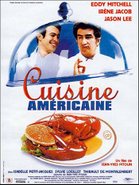
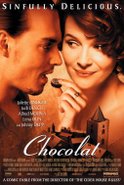










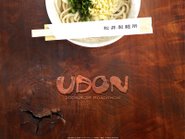































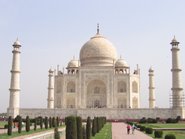




































2 comments:
I enjoyed your article very much. Thank you!
This is a sad world that has grown distorted in the pursue for what they think is happiness. Ppl just want to be happy and carefree, and think it can be purchased by $$$. But those who reached the end of the rope knows time is true factor.
Post a Comment